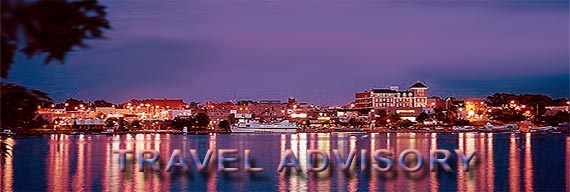|
<>Traditionally,
Chinese citizens have not been allowed to travel freely and have not
had passports with which to do so. In the last three years, this
situation has changed dramatically.
After much
negotiation, China has signed 'Approved Destination Status' (ADS)
agreements with over a hundred partners including some European
countries. ADS simplifies the exit procedure for Chinese tourists,
allowing them to travel on ordinary passports and to apply for tourist
visas.
Without ADS,
Chinese residents can only travel on visas for business, study or to
visit relatives. With ADS, individual Chinese passport holders with
financial resources have no restrictions on foreign travel, provided
they can obtain the individual visas necessary for entry to the
countries to which they are travelling. The only restriction is that
have to travel as part of an official tour group and an escort must be
present at all times that the group is overseas.
For the
European countries, ADS means that countries can legally promote group
leisure travel through distribution and sales channels with wholesalers
and travel agents as well as advertise the destination and its products
to Chinese consumers.*
History:
1983
Chinese Mainlanders first allowed to visit HK and Macao on private
business 2003 Chinese citizens permitted to apply for private passports
using their residence permits, offering the option of international
travel to the masses 2004 Germany becomes the first EU country to
welcome Chinese tourists
Facts:
* Once a
passport has been obtained, Chinese citizens can apply for visas to
travel wherever they wish * For ADS countries, they can apply for
tourist visas and for non-ADS countries, they must obtain business or
visas specifically for visiting friends and relatives. (In the case of
the Schengen countries, one visa allows access to all countries that
are part of the Schengen agreement) * Although free travel is allowed
within destination countries once the visa has been obtained, if
travelling in tour groups it is standard practice for the tour guide to
hold onto the passports of all group members * Travel agents in China
that 'lose' members of their groups whilst in Europe are quickly
blacklisted with the visa issuing operations of the Embassies and
Consulates in China. The number of permanently or temporarily
blacklisted ADS-approved tour operators is steadily increasing.
Shopping
Shopping
constitutes another way for European businesses to gain from the
increasing wealth of China and the newly granted freedoms in travel.
Whilst the numbers of tourists may not be high, the level of spending
amongst Chinese tourists that do get to Europe, is.
A trip to
Europe is often the first time for Chinese to travel overseas and their
spending patterns can be irrational. Some simply buy anything they
can't buy in China. The spending of Chinese tourists often doesn't
reflect income levels however so looking at household income or even
disposable income levels of China's population can be misleading. Many
spend much more than we may have predicted.
According to
French tourist authorities, average visitors to France from China spend
US$3,000 on one visit. By contrast, average spend by visitors from
North America and Europe stands at merely US$1,000.
Challenges
China
clearly holds huge potential but for many European operators, it is
proving a difficult market.
One of the
ironies of the European tourism industry is that it is heavily
regulated if the consumers are Europeans; but if the customers are
purchasing their products outside the EU, then few regulations apply.
One factor
that is helping to drive down prices is competition from creative
Chinese operators based in Europe. These agents are willing to use
informal networks of business contacts that bypass many of the normal
requirements of group tourism. It is difficult for an established tour
operator to compete on price with a China Town agency supplying a
mini-bus driven by a local waiter and until the Chinese tourists
themselves demand more, this situation may not change. The good news is
that we think Chinese tourists will be demanding much more very soon.
Other challenges:
Short term
bookings? Continuous changing of programmes? Unfair competition from
small cash paying agents? From the Chinese agents a lack of
understanding about controls on long itineraries with regard to driving
hours (There is hope that the new EU driving legislation will give all
operators an even playing field to implement sensible itineraries.)?
Insufficient knowledge of Europe amongst Chinese salespeople? Different
habits and tastes of Chinese tourists (behaviour in hotels and
restaurants is different to that expected in Europe)? Lack of knowledge
of European Law by the Chinese tour operators.
We continue
to monitor the development of this industry and have strong links with
senior management at many of the Chinese travel agencies. Our recent
series of consumer focus groups means that we are able to provide
useful insights into the motivations and aspirations of Chinese
tourists. If you are interested in more information. Jessica Wang and
Laura Mitchelson
Amber is a
specialist business and opinion
research provider
based in Shanghai. We give access to the knowledge, opinions and
recommendations of decision makers, business leaders and industry
experts. Our recent series of consumer focus groups means that we are
able to provide useful insights into the motivations and aspirations of
Chinese tourists.
If you
would like more information about
Amber, please
contact Laura Mitchelson at lmitchelson@amberinsights.com
About
the Author
Laura
has 15 years experience in China advising companies on operations and
marketing strategy and managing large-scale research projects.
She
is a fluent Chinese speaker who has worked with both mid-large sized
firms and small companies considering China as their first overseas
investment.
Email
Laura at lmitchelson@amberinsights.com
|













